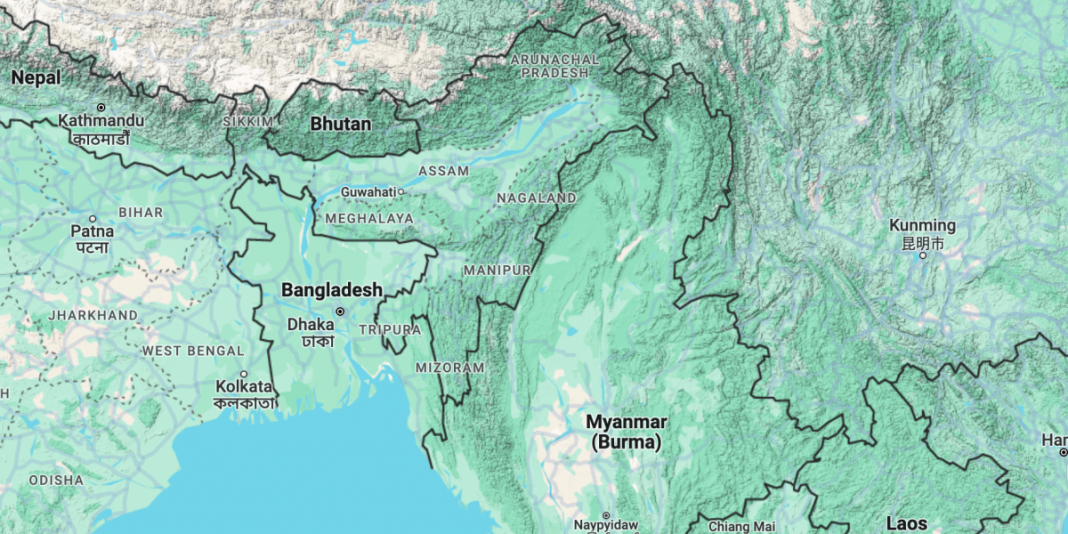DM Monitoring
New Delhi: The Kuki Inpi Manipur, an organisation of Kuki tribal communities in the conflict-affected state, has expressed concern over the Union government’s decision to end free movement of people at the India-Myanmar border. It has described the decision as ‘abrupt.’
At a public address on January 20, Union home minister Amit Shah said that the border separating India and Myanmar will be entirely fenced with barbed wire.
Shah said the government will also consider ending the Free Movement Regiment, implemented in 2018 as part of India’s Act East Policy. It allowed residents of both countries living along the border to travel up to 16 kilometres into each other’s territories without a visa. Kuki Inpi Manipur registered its profound dismay over the decision and said fencing will not address some of the “complex challenges” that the area faces, reported PTI.
“…[C]oupled with the move for the cancellation of Free Movement Regime…The unforeseen development has prompted a profound sense of concern within the Kuki Zo community,” it said.
The Kuki body has appealed to the Union government to “reassess this course of action”. Manipur is one of four states which share a border with Myanmar. The others are Arunachal Pradesh, Nagaland and Mizoram. The Manipur government under N. Biren Singh has alleged that the involvement of “mercenaries” from Myanmar is likely in a recernt attack on security forces in the state.
Earlier, India plans to erect a fence along its vast and porous frontier with Myanmar and will scrap a free movement border zone agreement, Indian media reported on Sunday. The announcement by Home Minister Amit Shah comes after hundreds of troops from Myanmar who were fleeing insurgent attacks crossed into India. The government had “decided to fence the entire open India-Myanmar border”, Shah said on Saturday during a visit to the northeastern state of Assam. The frontier stretches for more than 1,200 kilometres, ranging from remote jungle to soaring snow-capped Himalayan peaks.
Shah, who gave no details of a timeframe or how the fence would be built, said the government would also end a free movement agreement. The deal allows those living in border zones to venture a short distance into each other’s territory without a visa. Many in the border zones share close cultural and religious ties.
“We are going to end this facility,” Shah said, according to a video posted by the Times of India. India has already fenced more than 2,000 kilometres of its border with Pakistan, and at least 3,100 kilometres with Bangladesh, according to government statistics from 2021.
Parts of Myanmar near the Indian border have seen frequent clashes since the Arakan Army (AA) attacked security forces in November, ending a ceasefire that had largely held since a 2021 military coup.
In October, an alliance including AA insurgents and other ethnic minority fighters launched a joint offensive across northern Myanmar, seizing vital trade hubs on the Chinese border.
Earlier this month, the alliance announced a China-mediated ceasefire, but it does not apply to areas near the Indian border, where fighting continues.





